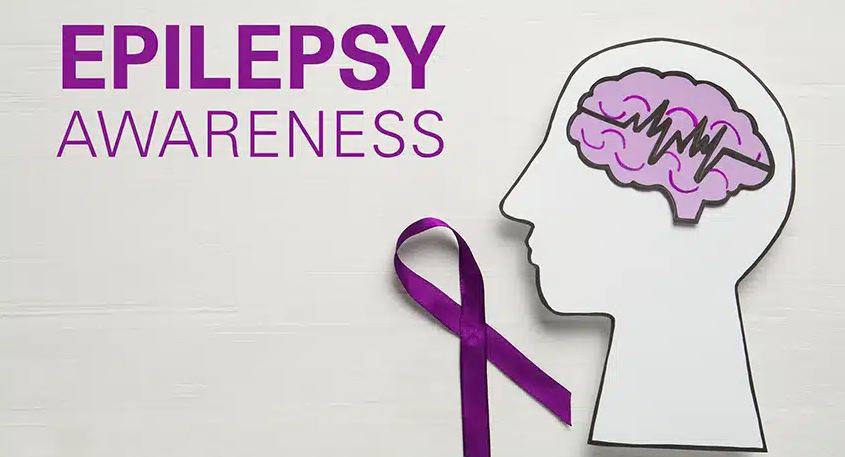In the heart of Navi Mumbai and Central Mumbai, Dr. Girish Nair, a renowned and compassionate neurologist, has been tirelessly working to dispel the persistent myths surrounding epilepsy. With his vast expertise and patient-first approach, he has become a beacon of hope for thousands affected by this misunderstood condition. Epilepsy, often clouded by stigma and misinformation, needs a serious shift in public perception, and it begins with awareness.
Understanding Epilepsy: More Than Just Seizures
Epilepsy is a chronic neurological disorder marked by recurrent, unprovoked seizures. While seizures are the most recognizable symptom, they are just the tip of the iceberg. Epilepsy affects the brain’s electrical activity, leading to episodes that vary in type and intensity from momentary lapses in attention to full-body convulsions.
What’s critical to understand is that epilepsy is not a mental illness, nor is it a sign of spiritual possession or personal weakness. These myths have contributed to the isolation and shame many individuals with epilepsy face, often discouraging them from seeking timely medical treatment.
Myth #1: Epilepsy Is Rare
One of the most dangerous misconceptions is that epilepsy is a rare disease. In reality, it affects over 50 million people worldwide, making it one of the most common neurological conditions. In India alone, approximately 10 million people live with epilepsy, many undiagnosed or untreated due to societal taboos.
Myth #2: All Seizures Are the Same
A common stereotype is that all seizures involve violent shaking and loss of consciousness. However, there are many types of seizures, including:
- Absence seizures (brief lapses in awareness)
- Focal seizures (impacting a specific part of the brain)
- Generalized seizures (involving the entire brain)
- Atonic seizures (sudden loss of muscle tone)
This diversity in presentation is why an expert diagnosis from a neurologist like Dr. Girish Nair is essential for accurate treatment and management.
Myth #3: Epilepsy Has No Cure
While epilepsy is a chronic condition, many people become seizure-free with the right treatment. Anti-epileptic drugs (AEDs) are effective in controlling seizures in 70% of cases. In some instances, surgery, dietary therapy, or vagus nerve stimulation can provide significant relief or complete seizure control.
The belief that epilepsy is incurable only serves to discourage patients from pursuing available medical interventions that could change their lives.
Myth #4: Epilepsy Is a Result of Possession or Curses
Unfortunately, in many communities, epilepsy is still misunderstood as a supernatural phenomenon. These myths lead to stigmatization, discrimination, and even inhumane treatment of people with epilepsy. These outdated beliefs are not only incorrect but deeply harmful, preventing patients from getting the help they need.
Educating the public about the biological basis of epilepsy is the first step toward compassion and appropriate care.
Myth #5: You Can Swallow Your Tongue During a Seizure
This is a persistent myth that often leads to dangerous first-aid actions. It is physiologically impossible to swallow your tongue. Trying to force an object into someone’s mouth during a seizure can cause more harm, including broken teeth or jaw injuries.
Correct first aid during a seizure involves:
- Keeping the person safe from injury
- Turning them to their side
- Timing the seizure
- Not restraining them or putting anything in their mouth
Epilepsy and Quality of Life: A Manageable Future
With timely diagnosis and appropriate treatment, people with epilepsy can live full, productive lives. Many continue their education, pursue careers, have families, and excel in their fields. However, the social stigma around epilepsy often holds them back more than the disease itself.
Public awareness campaigns, open conversations, and informed medical care are the pillars of support every patient needs.
When Should You See a Neurologist?
If you or someone you know experiences:
- Unexplained fainting spells
- Sudden confusion
- Recurrent jerking movements
- Blank stares or zoning out episodes
It’s time to consult a specialist. Dr. Girish Nair brings years of experience and modern neurodiagnostic tools to accurately diagnose and tailor treatment plans that ensure the best possible outcomes for patients.
Epilepsy in Children: Early Intervention Is Key
Children are often more vulnerable to epilepsy. Conditions like febrile seizures, genetic epilepsy syndromes, and developmental disorders can all be managed with timely interventions. Paediatric epilepsy treatment focuses on minimizing developmental delays, maximizing learning potential, and ensuring social inclusion.
Dr. Nair’s empathetic approach has helped countless families navigate the complexities of childhood epilepsy with confidence and hope.
Women and Epilepsy: Special Considerations
Hormonal fluctuations, pregnancy, and menopause can all affect seizure patterns in women. Certain anti-epileptic medications may have implications for fertility and fetal health, which is why treatment for women needs a personalized, well-monitored approach.
Dr. Girish Nair ensures that women with epilepsy receive the guidance they need to manage their health without compromising their life goals.
Breaking the Stigma, One Conversation at a Time
The greatest challenge in managing epilepsy is not always medical, it is societal ignorance. We must advocate for more epilepsy-friendly workplaces, inclusive schools, and public policies that protect and empower those with this condition.
The more we talk about epilepsy accurately and empathetically, the faster we break the chains of myths that surround it.
Why Choose Dr. Girish Nair, MD (Med), DM (Neuro)?
As one of the most respected neurologists in Navi Mumbai and Central Mumbai, Dr. Girish Nair brings a combination of clinical excellence, deep understanding, and heartfelt empathy to epilepsy care. His commitment to spreading awareness and offering cutting-edge treatments makes him a trusted name for families navigating this journey.
Conclusion
Epilepsy does not define a person. It is a medical condition, and like many others, it can be managed with the right care and understanding. We need to challenge the outdated beliefs and embrace a future where science, compassion, and awareness lead the way.
If you or your loved one is battling epilepsy, reach out to specialists like Dr. Girish Nair, because no one should have to suffer in silence.

